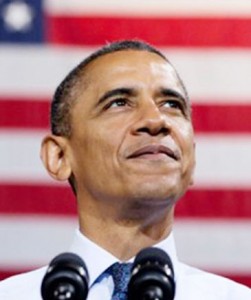 Teacher union sentinels warn us that school choice will rescue only the more promising students from a rejected public school, damaging that school further by their absence. The parents most likely to exercise their new authority - say the critics - will be those more concerned and sophisticated. In any case, the private schools chosen will then cull and reject the less attractive applicants; this predicted behavior is labeled “creaming,” “cherry-picking” and the like. Empirical study of private school admission practices puts this latter rap in serious question. Further, the design of state systems of choice in years ahead seem increasingly likely to assure fair inclusion of the poor without threatening the school's identity.
Teacher union sentinels warn us that school choice will rescue only the more promising students from a rejected public school, damaging that school further by their absence. The parents most likely to exercise their new authority - say the critics - will be those more concerned and sophisticated. In any case, the private schools chosen will then cull and reject the less attractive applicants; this predicted behavior is labeled “creaming,” “cherry-picking” and the like. Empirical study of private school admission practices puts this latter rap in serious question. Further, the design of state systems of choice in years ahead seem increasingly likely to assure fair inclusion of the poor without threatening the school's identity.
But private school behavior will not be my subject. My focus, rather, will be the likelihood of change over time in the behavior of those parents who do not participate in the first round of choice and who seem out of the game. Will these fathers and mothers in due course become aware? And, once they grasp that they have authority, will they use it? What will be the effect on child and society?
One begins by asking: How do residents of lower-income neighborhoods today learn about change in the life styles of their neighbors? The urban sociologists whom I know seem to this day to recognize the efficacy of the grapevine. Its enhancement by the Internet is hard to estimate, but surely the overall effect of the modern organs of scuttlebutt will be to increase connectivity. Together, these social twines should be sufficient to spread the word in the neighborhood that Alice’s kid has left P.S. 99 for St. Mary’s.
But the most effective messengers of this sad news will be children themselves. The departing student’s stay-behind friend will be disappointed; his or her mother will get the message at dinner. Indeed, once defection has begun, there will be no hiding the new game, even from the duller parent. In addition one must remember: once choice has at last created competition for less well-off students, it will behoove every school to advertise its special charms in the most inventive ways to all families.
It is highly improbable that the slower-motion parent, once she really knows, will forever sit on her hands. She will, instead, begin to fumble and stumble toward participation. She will make mistakes, and there will be no want of charlatans and incompetents who, on occasion, will get the advantage of her. There will, in short, be a burst of variety, good and bad; and if - in the long run - one brand proves ideal for all of us, we will be happily surprised. However, there could well be one best educational recipe for that very specific person, little George. Experimentation by his parent may work its discovery for him; and that would now be possible for every child.
But is this a good idea? Society has for very long trusted only the haves among us with their own child; yet should that trust be extended to the have-nots? Apart from test scores, what will be the social and civic consequences?
As the nation gradually faces this issue, what is often overlooked is the positive effect of empowerment upon the parent herself. She becomes the groping, striving hopeful creature that is the rest of us. She can at last seek her own child’s way like the luckier among us. And, if she is not presently their equivalent in savvy, here is her opportunity - if only gradually - to become so by steady application of the three qualities that are unique to parents: love, insight and personal responsibility. (more…)
 President Obama has often called on us to be true to who we are as a people, as Americans. And in his second term, he has the opportunity to transform the education system back to our core - to where parents are primarily in charge of children’s educations.
President Obama has often called on us to be true to who we are as a people, as Americans. And in his second term, he has the opportunity to transform the education system back to our core - to where parents are primarily in charge of children’s educations.
We have paid a price for transferring authority and responsibility for educating children from parents to government entities. With mostly though not always good motives (remember Brown v. Board of Education), we allowed the dream of the government-owned and operated common school to live on despite overwhelming evidence that, in reality, it wasn’t working. A child’s educational destiny continues mostly to be a function of his/her zip code and the competence of strangers who sit on local school boards.
For more than three decades, a long, slow correction of this anomaly in American society has been underway. First, intradistrict and interdistrict transfers began to appear that allowed limited parental choice within some parts of the public school system. Then magnet schools surfaced, offering options such as vocational, talented and gifted, and language immersion programs, and responding to more demands. In 1992, charter schools emerged. Today they account for almost 6 percent of all public schools, approaching 6000 total, and the number grows steadily each year because the demand from parents so far is insatiable.
Thanks to my colleague at the American Center for School Choice, Gloria Romero, a new tool has appeared. The parent trigger empowers parents to make changes to their school when they are not satisfied. Already 20 states have considered the approach and seven have adopted laws.
Private school choice programs continue to gain support, too. And they have done so despite fierce opposition from forces that want to defend market share over a parent’s right to choose. Today, 32 such programs operate in the country. And in recent years, many school choice bills have either been passed by legislatures with Democratic majorities or signed by Democratic governors. Just as important, once enacted, these programs have only grown. No state has repealed a program or decided choice does not serve the public well. Moreover, the doomsday scenarios that opponents consistently forecast for public education systems have never happened.
It’s said you can’t argue with a river; it is going to flow. Parents are going to take back the authority and responsibility for educating their children. The river has been flowing for more than 20 years and the current is gaining speed. It’s time for more Democrats to stop arguing as families assert their fundamental and universally accepted American value that they know the best choice for their children. Democrats need to work in positive ways to transform our system. We need good schools and there’s plenty of room for all types - public, charter, and private.
President Obama has the life experience, as well as the political skills and credentials, to lead this transformation, and to make it less jarring and less confrontational. (more…)